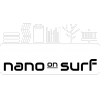 |
PIs: Ángel Barranco Quero / Ana Isabel Borrás Martos (Jun-2020/May-2023) |
Read more …
AdFunc is a highly interdisciplinary project whose main objective is to achieve significant progress in two areas at the frontier of Materials Science: the development of multi-response sensors and light-activated energy systems. The common denominators of AdFunc are the intelligent design of complex architectures at the nanoscale and the development of laboratory scale demonstrators.
We are convinced that the project opens a window of opportunity for us to carry out research that can be classified into four areas: i) Applications and devices: We will develop the recently discovered tribotronic and piezotronic effects to manufacture self-powered sensor devices. With these materials, in combination with several advanced photonic sensing and spectro-electrochemical technologies, we will expand the efficiency, multiactuation and multiresponse of optofluidic adaptive systems. These systems, maintaining a common architecture, will present a differentiated response to diverse and complex real scenarios, which will be simulated in the project (environmental alterations such as spills, accidents, chemical or explosive threats).
Another fundamental aspect of the project are the photovoltaic devices, which will be optimized to be able to work in low light conditions, and mechanical energy collectors and devices that are capable of coupling light and movement to the activation of the water electrochemical decomposition. ii) Nanomaterials: AdFunc is a project where a team of specialists in the development of supported nanostructures by different technologies come together. This will allow us, for the first time, to implement a set of 3D nanoarchitectures (nanowires, nanotubes, core@shell) and the design of materials with controlled nanoporous structures (sculptural layers, nanochannels, porosity associated in several scales, porous optical multilayers, pioneering developments of metalloorganic networks (MOFs) in porous photonic structures) directly to the improvement of the active components of the project devices. Iii) Strategy: The project gives us the opportunity to work simultaneously on new synthetic routes, advanced characterization of materials and properties, integration of materials into devices, and this while simultaneously obtaining modeling and simulation information. iv) Perspective of scalability: In all cases, methods and techniques compatible with established industrial processes will be used, such as plasma and vacuum, typical of the optoelectronic and microelectronic industry, and synthesis processes in solution. Another interesting aspect is the possibility of introducing plastics and polymers to manufacture devices, which may allow the valorization of waste from the plastic industry, in an effort of circular economy in which researchers of the project are committed.
AdFunc is only possible thanks to the joint effort of a large number of researchers, mostly from ICMS-CSIC and the Pablo de Olavide University, which is completed by a group of researchers from other national and international institutions with complementary experience and interest. It is precisely the coordination of such a large number of specialists (25 doctors in the two subprojects) that allows us to propose the development of such a complete and ambitious set of activities.
|
Financial source: Miniesterio de Ciencia e Innovación Code: PID2019-110430GB-C21 Acronym: AdFunc |
Research team: José Cotrino Bautista, Victor J. Rico Gavira, Francisco Yubero Valencia, Juan Pedro Espinós Manzorro, Agustín R. González-Elipe |

